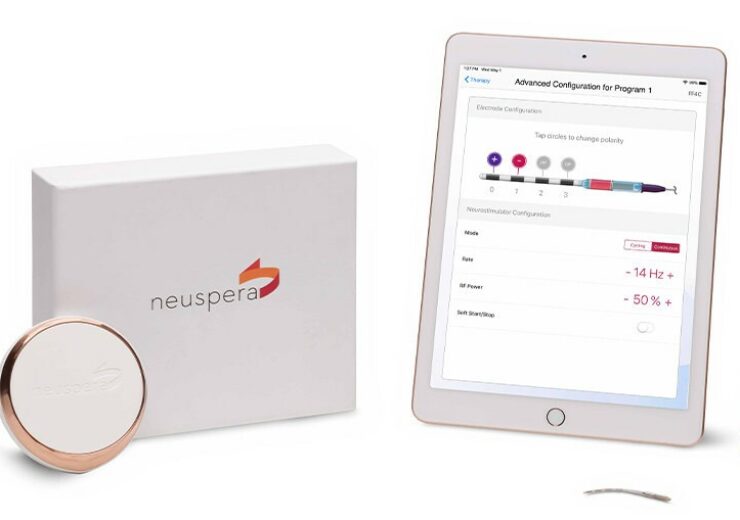The Neuspera ultra-miniaturised system is designed to deliver peripheral nerve stimulation (PNS) through a wireless, less invasive, and versatile platform compared to commercially available technology

Neuspera ultra-miniaturised PNS system. (Credit: Neuspera Medical Inc.)
US-based neuromodulation devices maker Neuspera Medical has received the US Food and Drug Administration (FDA) approval for its next-generation Neuspera ultra-miniaturised system.
The system is designed to deliver peripheral nerve stimulation (PNS) through a wireless, less invasive, and versatile platform compared to commercially available technology.
The PNS system contains a micro-implant that delivers neurostimulation therapy through a wireless platform that includes a wearable transmitter and iPad-based clinician programmer.
Neuspera said that its ultra-miniaturised system is designed to be smaller than the currently available tiniest commercial implantable pulse generator.
Also, the device enables physicians to treat deeper anatomical targets compared to currently available technologies.
It is the first PNS device to provide an ultra-miniaturised option to deliver a superior patient experience and enhanced procedural flexibility, said the medical device company.
Neuspera Medical CEO Steffen Hovard said: “We look forward to bringing this innovative technology to physicians and patients in the US.
“The Neuspera ultra-miniaturised system has the potential to revolutionise the way physicians treat patients battling chronic pain while restoring patients’ health and quality of life.”
Neuspera Medical is a medical device company developing implantable medical devices aimed at improving the lives of patients suffering from chronic illnesses.
Its Neuspera platform is designed to provide new, less invasive, and adaptable treatment options to help patients restore their health and quality of life.
In June last year, Neuspera Medical announced its plans to recruit patients for the second phase of the SANS-UUI clinical trial of its Nuvella system.
The study was designed to enrol 145 patients at 25 sites worldwide to evaluate the safety and efficacy of its sacral neuromodulation (SNM) system to treat patients with urinary urgency incontinence (UUI).
The company said that its Nuvella system is the first SNM device to provide a minimally invasive approach to improve procedural flexibility in the treatment of overactive bladder (OAB).
